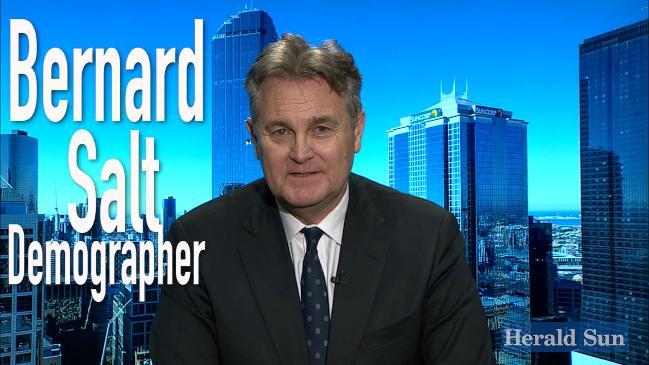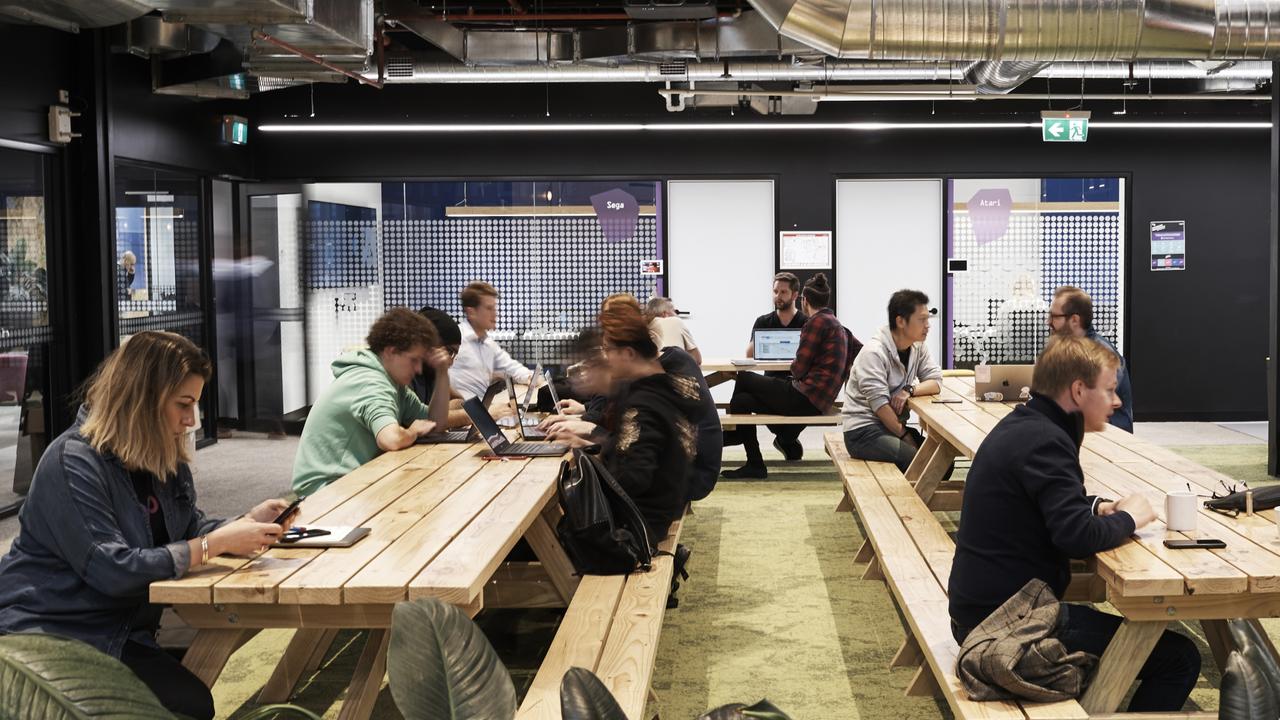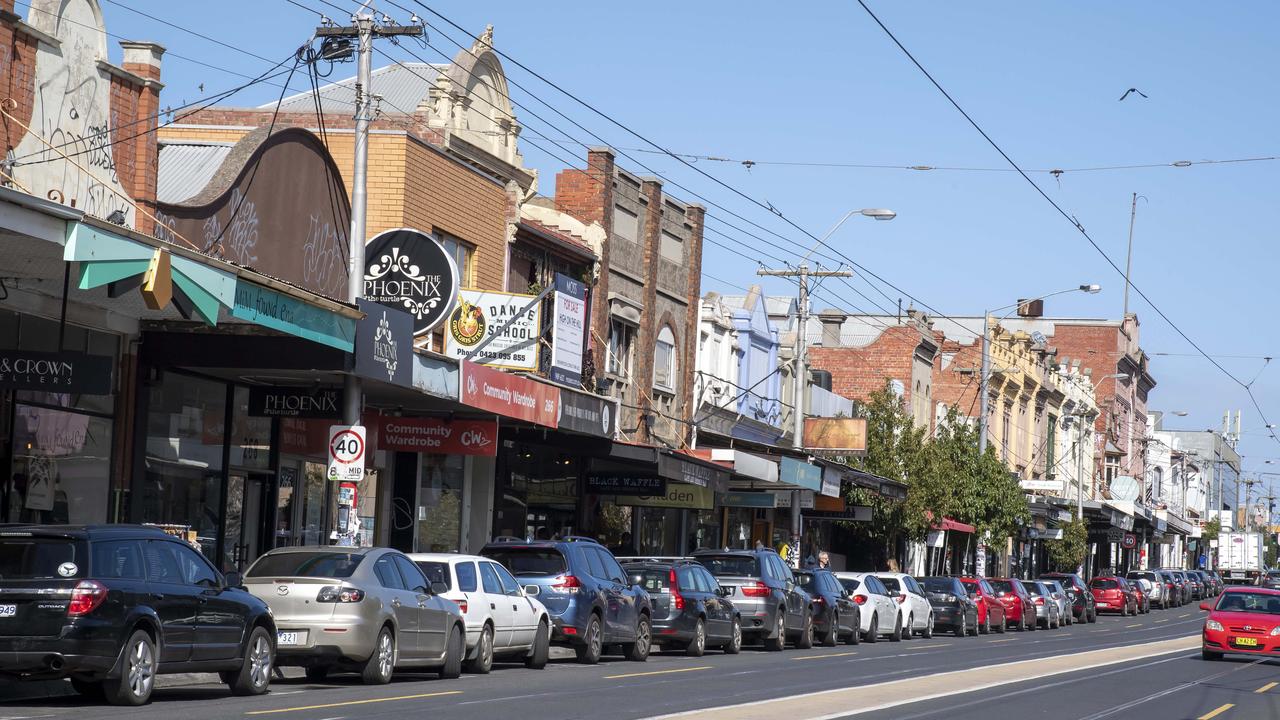RACV report says congestion crippling Melbourne’s outer suburbs
THIS Cranbourne woman faces a 90-minute each-way drive to her Richmond workplace as she battles a Melbourne transport network plagued with congestion. The RACV is pushing for $13 billion in projects to get the outer suburbs moving.

MELBOURNE’S transport network is lagging up to a “generation behind”, with a $13 billion overhaul needed to get outer suburbs moving.
A two-year analysis of growth areas, conducted by the RACV, reveals suburbs crippled with road congestion and no access to trains.
CONGESTION COULD CLOG TULLAMARINE FREEWAY BY 2018
MELBOURNE TRAFFIC DELAYS AND CONGESTION COST UP TO $912M A YEAR
CONGESTION LEVY, HIGHER PARKING TAX TO EASE TRAFFIC NIGHTMARE
HOUSING ISSUE PUTS ‘MOST LIVEABLE’ TITLE AT RISK
It found “ageing and stressed” transport infrastructure was making commuting “exhausting” and even local travel a struggle.
The RACV has proposed more than 140 projects to tackle the issue and wants frustrated travellers to help identify the most urgent.
Melbourne’s outer suburbs will overtake the combined population of inner and middle suburbs by 2031, topping 3 million.

RACV manager of mobility advocacy Dave Jones told the Sunday Herald Sun: “There is a genuine problem in these areas. And it’s a growing problem.
“It can have a dramatic impact on your life and your opportunities in life.
“It’s not just the financial cost — it’s lost time with family and friends or in the workplace.”
The report, released to the Sunday Herald Sun, polled 17,000 people and examined transport issues in 14 outer suburban municipalities.
It revealed:
INADEQUATE public transport, gaps in the road network and congestion are stifling access to critical services like schools and jobs;
NUMEROUS outer arterial roads are at or beyond capacity, creating delays and safety issues;
RAILWAY station carparks are full before 7am, forcing commuters to leave earlier and earlier just to get a spot;
BUSES are the only public transport option in some areas but are failing with inadequate coverage, poor frequency and don’t properly connect with other services; and
RURAL-style roads with gravel shoulders built to connect once sparse settlements now carry thousands of commuters a day.
The RACV found congestion the main road issue in 12 of the 14 municipalities analysed.

Road condition and maintenance were also frequent problems.
Some roads planned to link growth areas had not been built.
Common public transport issues were difficulty parking at rail/bus stations and services that were crowded, infrequent or not available.
Mr Jones said better connections between outer suburbs were critical, with as few as 4 per cent of workers in some areas wanting to go to Melbourne’s CBD.
“Most of their lives — where they work, where they play, where they go for education, family and friends — is in the outer suburbs,’’ he said.
“They’ve got no choice but to drive and on many of those roads they are congested because they aren’t coping with the traffic volumes that are there or will be coming as the suburbs expand.
“Stations are at the end of their life or new stations haven’t been built, train lines need electrifying, and that backlog of road projects needs to be fixed.
“There hasn’t been the scale of government funding needed for a long time.”
The RACV has listed 142 transport projects at a cost of about $13 billion to help ease problems.
Key rail projects include extending the metropolitan line to Clyde, duplicating the Belgrave line, electrifying the line to Baxter, duplicating and electrifying the line to Melton, creating a rail link between Werribee and Wyndham Vale, and extending the line from Lalor to Epping North and Wollert.

A transit link would connect Huntingdale station to Rowville and a busway built along Doncaster Rd and the Eastern Freeway.
Road projects include duplicating Koo Wee Rup Rd between Princes Fwy and the Koo Wee Rup Bypass in the southeast, duplicating the Melton Hwy from Hillside to Melton, extending Aitken Blvd (E14 Arterial) in the north and widening Fitzsimons La in the northeast.
South East Melbourne chairman Simon McKeon, representing councils in the region, said investment in roads and rail lines was “urgently” needed along with creation of a southeast freight rail hub linked to the Port of Melbourne.
Mr McKeon said that, between 2011 and 2016, car travel to work in the southeast grew 14 times faster than train travel.
“Parents are sitting in traffic going to and from work when they should be spending time with their families and relaxing,’’ he said.
“Exorbitant transport costs for businesses in the southeast also prevent growth and put jobs at risk.”
Roads Minister Luke Donnellan said: “Melbourne is growing faster than any other city in Australia — that’s why we’re doing more road work than ever before.
“We know we can’t just build our way out of congestion, that’s why we’re also building the Melbourne Metro Rail Tunnel,’’ he said.

LONG HAUL
CHANTELLE Riordan’s car has clocked up more than 60,000km in just two years.
The Cranbourne 36-year-old typically faces a 90-minute drive to her Richmond workplace as she battles congestion on the two-lane South Gippsland Hwy before getting on the Monash Fwy.
A minor crash can blow the journey out even more.
“It’s not uncommon to have a 2½ hour commute,’’ she said.
Ms Riordan battles congestion just to get on to the South Gippsland Hwy — avoiding Thompsons Rd, which the RACV wants duplicated to the freeway.
Ms Riordan, a software trainer, sometimes takes the train from Cranbourne, but said services were unreliable and infrequent.
She would rather cycle to Merinda Park station, but there were no safe paths or bike storage cages.

SKIP THE LINE
SERVICES on the Werribee rail line are so unreliable teacher Elizabeth Freitas has cut the number of times she catches the train each week.
“I used to take the train every day to work, but there are so many cancellations and buses do not come anywhere near enough to get me to work on time,” Ms Freitas (right) said.
Ms Freitas’s commute to her Werribee workplace from Newport is sometimes so problematic she has resorted to taking a taxi.
She now gets picked up by a colleague.
“Whenever the city has a train go down, they cancel one on the Werribee line and send it in, leaving us stranded,” Ms Freitas said.
“Buses are so infrequent meaning they are absolutely packed and just an uncomfortable way to travel.
“It can be such a nightmare because if your train is delayed or cancelled, you’re forced to take a bus, and with how infrequently they run, you’re going to be late.”
-RYAN TENNISON

FRUSTRATED DRIVERS
NAVTEJ Singh spends as many as 12 hours a day behind the wheel.
The 33-year-old, who delivers goods for Dandenong South-based company Corex Plastics, said traffic in the outer suburbs had increased dramatically during his eight years in the job.
“It has mostly doubled now — especially in the west and the north,’’ he said.
Mr Singh (left), who travels up to 400km daily, said roads quickly filled with traffic even after widening.
“It’s frustrating,’’ he said.

ROAD, RAIL IN PLAN TO EASE PAIN
VICTORIA faces livability challenges. In one sense, our state is a victim of its own success.
Each week 2000 people move to Victoria because of its tremendous opportunities. Our economy is booming too. But this comes at a price.
By 2031, it is forecast Melbourne’s outer suburbs will overtake the population of inner and middle suburbs. While this growth is great for our economy, it is creating “growing pains” when it comes to transport.
For Melbourne to be a world-class connected city, our transport networks must reach well beyond the central area.

Melburnians deserve a fast, convenient and high-quality transport system linking areas of housing and employment and providing access to goods and services, healthcare, education and recreation.
RACV members have been telling us they want to see tangible solutions to these problems.
That is why RACV has developed the Growing Pains program — a program designed to look at both current and future growth areas and provide solutions to ensure livability.
Growing Pains has outlined more than 100 transport infrastructure projects, including road and rail.
While we recognise that all of them simply cannot be undertaken overnight, the projects provide a good starting point in tackling the network deficiencies that have developed because infrastructure investment has not kept pace with our population growth.
The good news is that many of the infrastructure projects identified in Growing Pains are becoming more feasible thanks to the big-ticket infrastructure items being built by state government.
The Growing Pains survey cited congestion as a major issue.
With the state budget a couple of months away, RACV hopes to see funding committed to improve many of our growing pains.
Without building these key links, Victoria risks reducing its livability status and future economic growth will be hindered.
BRYCE PROSSER IS RACV GENERAL MANAGER OF PUBLIC POLICY AND CORPORATE AFFAIRS


